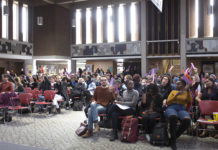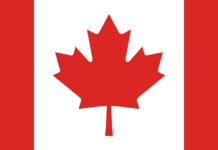The provincial government has considerable influence on universities and can use its power to cause harm to both students and university workers (instructors, TAs, RAs, etc). On one hand, The Ontario government is responsible for both incorporating Ontario universities and certifying labour unions. Universities are also partly funded by government grants. Altogether, it seems that university workers should feel gratitude toward the provincial government.
On the other hand, many undergraduate students have struggled due to recent cuts in OSAP funding. For workers, Ontario has killed legislation that would protect vulnerable employees, such as the Pay Transparency Act (PTA 2018). Ontario also has the power to legislate workers back into poor working conditions. Using police force and fines, workers in universities can be forced to work for low pay, and have their right to collective bargaining stripped away.
This is exactly what happened in 2018 at York University. After the administration refused to meet union demands for better job security, funding, and workplace equity, CUPE Local 3903 — York University’s graduate student union — began a strike. This became the longest strike for a post-secondary institution in Canadian history, lasting 143 days. It was expected that the strike would be resolved when the administration suffered enough financial losses to feel compelled to bargain, or the striking workers would become fatigued enough to soften their demands.
This did not happen. Instead, the new Ford government used its parliamentary majority to push through the Urgent Priorities Act. This bill imposed a fine of $2,000 each day for any striking worker and $25,000 each day for the union. Basically, a standstill was forcibly resolved by attacking vulnerable, largely poor, graduate students, rather than the multimillion-dollar university. To this day, many of the issues that caused the strike remain unresolved.
With increasing cuts to education and OSAP, the provincial government is less justified to intervene in labour affairs between universities and its workers. Tuition fees constitute a large part of university funding, so undergraduates are the only other stakeholder besides the university administration and workers. The right to self-determination for workers should be protected. When Ontario wishes to interfere in disputes between universities and their workers, our response should be to collectively fight that intervention.
Currently, UW workers are trying to unionise their TAs, RAs, and sessional instructors. When such a union forms, will UW workers be vulnerable to similar attacks from the provincial government? The York University strike indicates yes, but this isn’t an argument against union efforts. When collective bargaining and striking reach the point where provincial intervention is necessary, this indicates that considerable pressure has already been placed on the university administration. Back-to-work legislation is only able to prevent strikes temporarily. Workers will eventually be able to return to the bargaining table, and previous strikes will be remembered.
Strikes aside, legal protections exist for union workers that currently don’t exist for UW graduate workers, in any capacity. Namely, all workers have their work conditions dictated by a collective agreement, rather than the demands of their employer. This collective agreement codifies work practices such as overtime pay, benefits, and training. Without one, UW students are currently subject to very inconsistent standards across departments.
So what actions are available to members of UW? Most would suggest that participating in provincial elections is the most important way to enact change. However, pro-labour parties are already very successful in Waterloo and Kitchener Centre — the two ridings where UW members are most likely to live. First-Past-the-Post elections mean that there’s no benefit to “winning more” in these ridings. Furthermore, this is not a viable option for the many international students, who also have a right to advocate for their own working conditions. Protests and demonstrations offer a way to apply pressure to governments outside of the election cycle, but these options are limited in how much leverage they really have.
Real change will need to stem from grassroots efforts, beginning with the university. First, UW needs a union for its graduate student workers and sessionals. After the formation of a union, we must elect representatives who will stand firm against both the administration and provincial government.
Support from undergraduate students is also critical to ensuring Ontario can’t undermine bargaining efforts. A common tactic in the past has been to claim that strikes are intended to harm undergraduates as a way to pressure university administrations. In reality, it is often the administration’s unwillingness to bargain in good faith that leads to striking as a last resort. Graduate student workers are students themselves. Losing courses during strikes harms them as well as undergrads. Such strikes are necessary to ensure that graduate students have sufficient resources to be effective teachers for undergraduates.
Ultimately, it is a long but worthwhile battle to get graduate students the working conditions they deserve. This battle may find the provincial government in opposition to student workers. If so, we must be prepared to stand strong against a much more established institution than just the university administration.
Nolan Peter Shaw | PhD Student, Computer Science






























